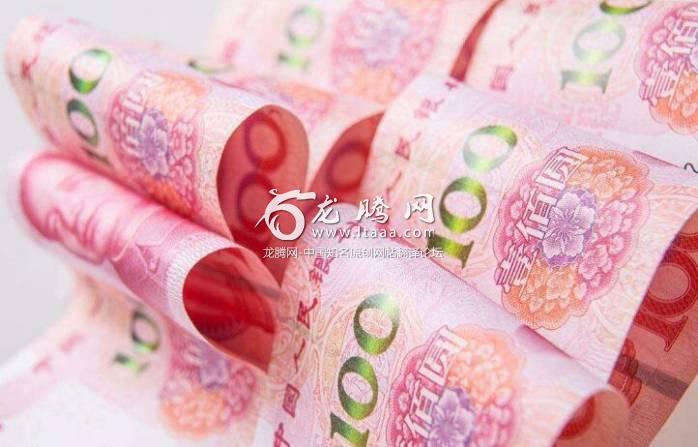【经济学人】马夫:中国如何打赢人民币保卫战 [英国媒体]
2016年初,前美联储主席本•伯南克写道:“这匹马可能跑出了马厩”。他认为中国资本管制可能无力阻止资本外逃。当时远不止他一个人这样想,随着中国资本外流,分析人士争论人民币是否暴跌,有些对冲基金确信这一天将很快到来。但两年后,这匹马又回来了:中国保护人民币取得成功,部分原因是更严格的资本管制。
Stable hands
马夫
How China won the battle of the yuan
中国如何打赢人民币保卫战
Capital controls, economic strength and a bit of luck go a long way
资本管制、经济实力、少许运气,任重而道远
“THE horse may be out of the proverbial barn.” So wrote Ben Bernanke, a former chairman of the Federal Reserve, in early 2016, arguing that capital controls might be powerless to save China from a run on its currency. He was far from alone at the time. As cash rushed out of the country, analysts debated whether the yuan would collapse, and some hedge funds bet that day was coming fast. But two years on, the horse is back in the barn: the government’s defence of the yuan has succeeded, in part through tighter capital controls.
2016年初,前美联储主席本•伯南克写道:“这匹马可能跑出了马厩”。他认为中国资本管制可能无力阻止资本外逃。当时远不止他一个人这样想,随着中国资本外流,分析人士争论人民币是否暴跌,有些对冲基金确信这一天将很快到来。但两年后,这匹马又回来了:中国保护人民币取得成功,部分原因是更严格的资本管制。
The latest evidence was an 11th consecutive monthly increase in foreign-exchange reserves in December. During that time China’s stockpile of official reserves, the world’s biggest, climbed by $142bn, reaching $3.14trn, roughly double the cushion usually regarded as needed to ensure financial stability. Another sign of China’s success is the yuan itself. At the start of 2017 the consensus of forecasters was that the currency would continue to weaken; it finished the year up by 6% against the dollar.
最新证据是12月份,外汇储备连续第11个月增长。在此期间,中国官方储备增长1420亿美元,总额达到3.14万亿美元,位居世界第一,约为确保金融稳定所需的缓冲资本的两倍。中国成功的另一个标志是人民币本身,2017年初,预测人士一致认为人民币会持续走弱,结果年底兑换美元汇率上涨6%。
Investors and analysts were not wrong in viewing Chinese capital controls as porous. Enterprising types had—and have—umpteen ways to sneak money out, from overpaying for imports to smuggling cash across the border in luggage. But there is a wide spectrum between a fully open and fully closed capital account, and China has showed over the past year that it can tilt towards closure, at least for a time.
投资者和分析人士认为中国资本管制有漏洞不无道理。无论过去还是现在,有开拓精神的人用各种办法把钱转到国外,例如为进口产品支付更多的钱,用行李把现金偷运出境。然而,完全开放和关闭资本账户存在巨大差异,去年显示中国有可能在一定时期内关闭资本账户。
Its measures were directed at actors big and small. Under more scrutiny from regulators, China’s overseas acquisitions fell by more than a third, to $140bn last year. Individuals were still permitted to convert up to $50,000 a year, but they faced heavier disclosure burdens. The government is in no hurry to relax these controls: a new, lower ceiling on withdrawals from ATMs abroad went into effect on January 1st.
这些措施针对的是大小参与者。随着监管机构加大审查力度,去年中国海外并购总额为1400亿元,减少了逾三分之一。个人仍允许每年兑换5万美元,但面临更大的信息披露压力。中国不急于放松资本管制:1月1日起,从海外自动取款机提取人民币的限额被再次降低。
Also crucial to China’s defence of the yuan was an economic rebound. Housing prices soared and industrial firms’ profits rose by 20% last year on the back of higher commodity prices. Here, Mr Bernanke can claim some vindication: in looking at China’s options in 2016, he had suggested that a fiscal boost would support growth and so help keep cash at home. An unconventional policy mix—investment in low-income housing and closure of excess industrial capacity—did the trick.
经济反弹对中国保护人民币也很重要。由于大宗商品价格上涨,去年房价攀升,工业企业利润增长20%。伯南克先生对此有他的道理:回顾2016年中国采取的措施,他认为财政刺激会支撑经济增长,有利于留住本国资本。非常规政策组合起了作用:投资保障性住房、关闭过剩的工业产能。
China had a stroke of good luck, too. Many had thought that Donald Trump’s presidency would initially add to dollar strength, which might have pulled cash away from China. But America’s political muddle instead weighed on the dollar. Not only did that boost the relative allure of Chinese assets, it also made its foreign-exchange reserves look more valuable in dollar terms, because roughly a third are held in other currencies. Over the past year, true inflows accounted for just about a third of the rise in China’s reserves; valuation changes explained the rest (see chart). Other Asian economies with hefty foreign-currency reserves, from Japan to Taiwan, reaped similar gains.
中国也有一定运气。许多人曾认为,唐纳德•特朗普担任总统之初会使美元升值,造成中国资本外逃。然而,美国政治混乱反而给美元带来压力,不仅增加了中国资产的吸引力,按美元计算的外汇储备也更具价值,因为中国外汇储备近三分之一是以其他货币持有的。在去年增加的中国外汇储备中,实际资本流入仅占约三分之一,其余来自外汇储备价值变动。拥有巨额外汇储备的其他亚洲国家也获得了类似收益,如台湾、日本。
As America cuts taxes and raises interest rates, the dollar may soon perk up. But China has less cause for concern than in 2016. Capital controls have reinforced the bolts on its barn door. And with growth holding up, the horse inside is well-fed.
随着美国减税和提高汇率,美元可能很快升值。但相比2016年,今年中国的担忧有所减少。资本管制加固了马厩的门闩,,随着中国经济持续增长,能让这匹马吃饱喝足。
版权声明
我们致力于传递世界各地老百姓最真实、最直接、最详尽的对中国的看法
【版权与免责声明】如发现内容存在版权问题,烦请提供相关信息发邮件,
我们将及时沟通与处理。本站内容除非来源注明五毛网,否则均为网友转载,涉及言论、版权与本站无关。
本文仅代表作者观点,不代表本站立场。
本文来自网络,如有侵权及时联系本网站。
图文文章RECOMMEND
热门文章HOT NEWS
-
1
最近,新冠肺炎疫情在日本有扩大的趋势,有专家呼吁日本应当举国行动起来,共...
- 2
- 3
- 4
- 5
- 6
- 7
- 8
- 9
- 10
推荐文章HOT NEWS
-
1
最近,新冠肺炎疫情在日本有扩大的趋势,有专家呼吁日本应当举国行动起来,共...
- 2
- 3
- 4
- 5
- 6
- 7
- 8
- 9
- 10











